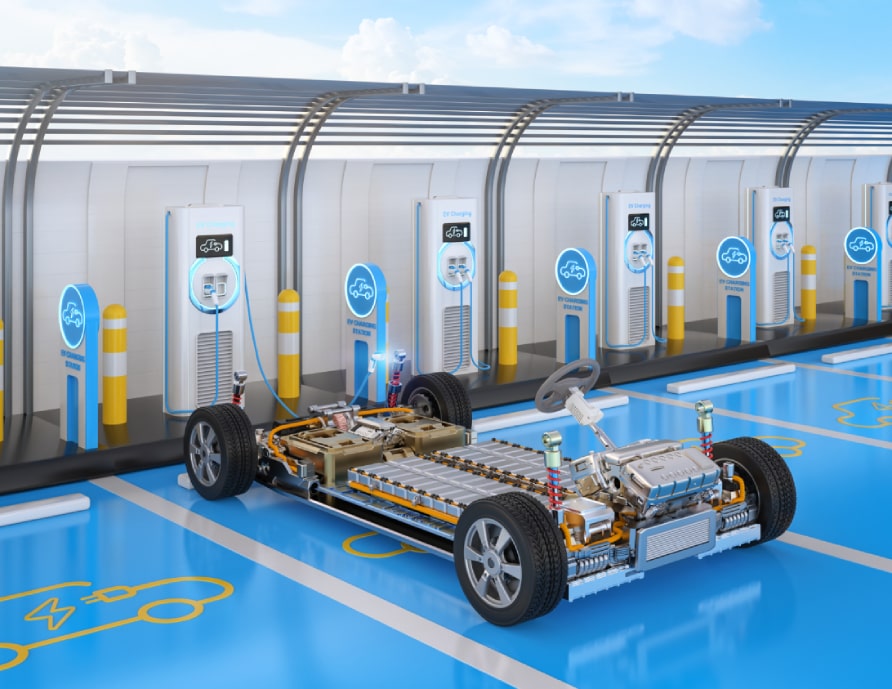Li-ion battery packs play a vital role in driving efficiency in electric vehicle (EV) fleet management. As the transportation industry shifts toward electrification, efficient battery management is crucial for optimizing vehicle performance, extending battery life, and ensuring reliable operations. Here’s how Li-ion battery packs contribute to efficiency in EV fleet management:
- Extended Range and Energy Density: Li-ion battery packs offer higher energy density compared to other battery technologies. This results in longer driving ranges for EVs, reducing the need for frequent recharging and enhancing fleet efficiency.
- Fast Charging Capability: Li-ion batteries can support fast charging, allowing EV fleet operators to recharge vehicles quickly during downtime or breaks, thereby minimizing vehicle downtime and increasing overall productivity.
- Predictable Performance: Li-ion battery technology provides consistent and predictable performance, ensuring that each vehicle in the fleet delivers a reliable driving experience without unexpected power fluctuations.
- Battery Management Systems (BMS): BMS in Li-ion battery packs monitor and manage various battery parameters, such as state of charge, temperature, and cell balancing. This optimizes battery performance, prolongs battery life, and prevents issues that could lead to premature degradation.
- Fleet Optimization Through Data Analytics: BMS data can be analyzed to optimize fleet operations. It helps identify trends, usage patterns, and energy consumption, enabling fleet managers to make informed decisions about route planning, charging schedules, and maintenance.
- Fleet Charging Infrastructure: Li-ion battery packs allow for efficient integration with charging infrastructure. Fast charging stations can be strategically placed along routes or at depots, ensuring that vehicles can quickly recharge during their operational cycles.
- Reduced Maintenance Costs: Li-ion battery packs require less maintenance compared to internal combustion engine vehicles. Fewer moving parts and simplified maintenance routines contribute to lower overall operating costs.
- Telematics Integration: Li-ion battery packs can be integrated with vehicle telematics systems, providing real-time data on battery health and performance. This information aids in preventive maintenance and ensures optimal battery utilization.
- Modular Design and Scalability: Modular Li-ion battery designs allow for easy replacement and scaling of battery packs. This flexibility enables fleet operators to adapt to changing vehicle requirements and extend the lifespan of the vehicles.
- Emission Reduction and Sustainability: Transitioning to EVs with Li-ion battery packs reduces greenhouse gas emissions and contributes to a more sustainable transportation sector.
- Regenerative Braking Efficiency: Li-ion batteries efficiently capture and store energy during regenerative braking, converting kinetic energy into electrical energy that can be used to recharge the battery and enhance overall efficiency.
- Integration with Renewable Energy: Li-ion battery packs can be charged using renewable energy sources, further reducing the environmental impact of EV fleet operations.
- Remote Monitoring and Fleet Optimization: Remote monitoring of battery health and performance enables fleet managers to optimize charging schedules, maintenance plans, and vehicle deployment for maximum efficiency.
In conclusion, Li-ion battery packs are integral to maximizing the efficiency of electric vehicle fleet management. They provide extended range, fast charging, predictable performance, data-driven optimization, reduced maintenance costs, and more. The advancements in Li-ion battery technology contribute to the growth of sustainable and efficient EV fleets, leading to improved cost savings, reduced emissions, and enhanced operational reliability.



